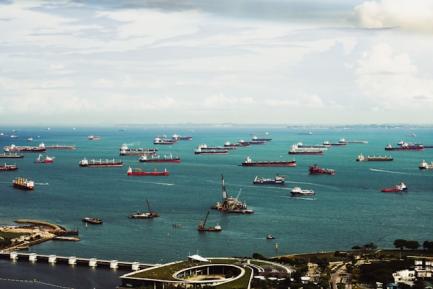Melancholy in the euro area
Autumn is a season prone to a certain melancholy. The days are rapidly getting shorter, the trees are losing their leaves and, after a summer break, many people are overwhelmed by their return to the daily grind. It is always tempting, and often a risk, to take refuge in a melancholy outlook at this time of year.
After suffering two recessions in just four years, the summertime was not good for the euro area's economy. Now the return to work has arrived and brought with it serious threats of melancholy, originating from the larger countries: France, Italy and also, albeit to a lesser extent, Germany.
Europe's political leaders are responsible for ensuring we do not succumb to such a gloomy temptation. On the one hand, the deterioration in the euro area's situation is closely related to geopolitical factors, particularly to tensions with Russia, but these factors should hopefully be temporary in nature. On the other hand the results of the European Parliament elections last May, together with the rise of extremist parties in many Member states, should sound the alarm for the European Union and most particularly the euro area. A jaded attitude, or merely «more of the same», will not counteract the increasing discontent among the population. Together with the new EU authorities, European leaders must ensure a true change in direction for economic policy in order to respond to today's formidable challenges. So what should form the basis of this new approach?
Regarding budget policy, the austerity debate must be suitably qualified, adjusting the reduction of public deficits to the different starting points and levels of debt. The more important countries such as Germany must especially play their part in helping to boost the aggregate demand of the euro area as a whole. It is in their own interest, given the existing degree of economic integration and Germany's great relative weight.
Regarding structural reforms, the countries now lagging most behind are France and Italy and the evident success of reforms in countries such as Ireland and Spain (and, to a lesser extent, Portugal) must spur them on to move from words to deeds.
Another area where immediate and bold action is required is the domestic market. Defeating all the protectionist resistances as necessary, Europe must integrate its service markets, especially in the area of regulated industries such as telecommunications and energy. This is a policy that would improve not only the current situation but also the long-term potential of Europe's economy.
Lastly, there is the financial area. Here the ECB has gradually worn down the resistance with an increasingly daring policy that has underpinned the integrity of the euro area and attempted to restructure the mechanism to pass on monetary stimuli and ensure liquidity reaches families and firms. This endeavour will be helped by the advances being made in Banking Union and by suitably handling the current assessment of Europe's banks. As discussed in depth in the Dossier of this Monthly Report, the stabilisation of regulatory policy will also help, eliminating the uncertainties that still influence the decisions taken by economic agents.
The recently deceased management guru, Warren Bennis, used to say that a good manager helps his team to reach their goal while a good leader convinces his people of what their goal should be. In the melancholy season par excellence, European citizens deserve chiefs who are not merely managers of the complex situation we have to deal with but true leaders, thereby successfully overcoming the huge challenges facing Europe's economy.
Jordi Gual
Chief Economist
30 September 2014


